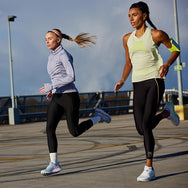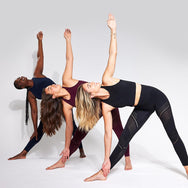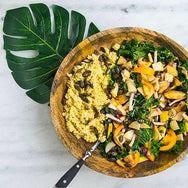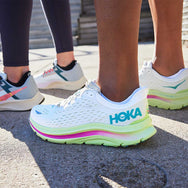By Linia Patel
After miles upon miles of running, you’ve finally reached the taper phase of your marathon training programme. For some runners, this phase comes with relief, yet for others this phase is actually more stressful! You’re running less… should you be eating more? Or is carbo-loading old school? How do you make it to start line without feeling sluggish? One size definitely doesn’t fit all.

Should you carbo load on spaghetti or spaghetti squash?
Here are my top tips to get you through your tapering phase so that you are nutritionally ready for your big event!
Carbs are king
Carbohydrate loading allows you to super ‘saturate’ carbohydrates into working muscles. It won’t make you run faster but it can help to delay fatigue during a race. The advice for carb loading before a marathon is very different these days. Gone are the days of depleting your carb stores, running on low and then super compensating for a few days before the event to maximise you glycogen stores. Current recommendations suggest that you continue to eat your normal carbohydrate intake (or slightly higher if you had a low carbohydrate intake).
The fact that you are tapering (reducing your training) means that you replenish your carbohydrate stores naturally ready for the big day. Focus on eating good complex carbohydrates like wild rice, quinoa, barley, sweet potato and pumpkin. Carbo-loading is not your opportunity to feast on creamed cakes and cookies!
Eat protein
Even though carbohydrates are the focus during tapering, don’t forget protein. Protein eaten together with carbohydrate can improve carbohydrate absorption and help with muscle repair and recovery. Lean red meat, fish, chicken, eggs or vegetarian alternatives like tofu or legumes should be eaten at all main meals.

Should you give up your daily flat white habit on race day?
Pay attention to the colour of your urine
During a marathon, average sweat rates are anywhere between 0.5-1.5 litres of fluid every hour, and can be higher depending on individual sweat rates or if racing in hot or humid conditions. You should have worked out your sweat rates during training. However, the best place to start with marathon hydration is in the days leading up to the big day. Ensure that you stay hydrated – but don’t drink obsessively. More is not better with hydration. Pale straw urine shows that you are hydrated. Overhydrating (clear urine) will flush away electrolytes like sodium and potassium which are needed for muscle contraction.
Go easy on the gluten
Although this is counterintuitive to mainstream nutrition advice for running, within my clinical practice many of my clients say they feel better and race better when they reduce the amount of gluten in their diet the week before the race. Instead of eating bowls of pasta and slices of bread they opt for gluten-free choices like new baby potatoes, wild rice, barley and quinoa. That being said, if you don’t suffer from bloating and feel sluggish – then it’s fine for you to have gluten foods leading up to your race. Listen to your body.
Let lunch become your big pre-race meal
Instead of having your big pre-race meal at dinner – make a small change and let lunch the day before a race become your big meal and allow dinner to be a normal-sized meal. This will help your body digest the larger meal well before the starting line, leaving you light on your feet yet ready to run!
Sort out gut issues
If you have ever experienced gut issues or had troubles with “runners trots” you may want to steer clear of artificial sweeteners and sugar alcohols. Artificial sweeteners and sugar alcohol found in diet drinks, gum and some sports products can cause irritation of the gut as your body does not have the enzymes to break them down. If you have experienced constant GI issues during your runs then you may also benefit from taking a multi-strain probiotic in the weeks before the race. Consuming food that is low in fibre and easy to digest also helps distressed guts.
Don’t try anything radically new
You know your body best, so in the days leading up to the marathon stick to foods you’ve eaten before that you know work for you. If you've eaten the same meal the day before every long run during your training, you probably want to stick to eating that same meal the day before your race. If you usually have a coffee in the morning – then have your coffee and enjoy it! If you haven't really kept track of what you eat, stick with eating foods that you're familiar with or bland foods you know won't upset your stomach the day before the race.
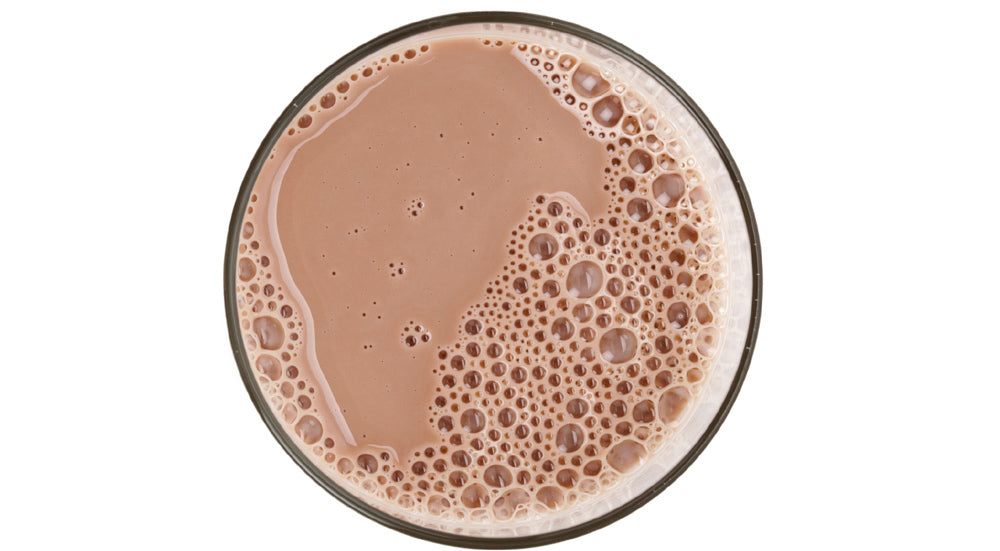
Chocolate milk can kick-start your recovery
Start your recovery early
You won’t feel like it – but you have to do it. A marathon results in significant nutrition stress (loss of nutrients, fluid loss, muscle damage) and it is important to start the nutrition recovery process as soon as possible after you finish the marathon. Make sure you have a snack ready at the end of the race to help kick start the recovery process. Muscles are most receptive to rebuilding glycogen within 30 minutes post event and they refuel at a faster rate if carbohydrate is ingested together with protein. This is why chocolate milk is such a good post exercise snack! Have a recovery snack as soon as possible, then make you have a hearty, yet wholesome meal within the next few hours.
Linia Patel is a leading dietitian and sports nutritionist. She's passionate about empowering people to better manage their health and optimise their performance through learning the essence of healthy eating. Outside of work, Linia is a wannabe triathlete. Visit her website: www.liniapatel.com.
Photo credits:
[1] http://reciperunner.com/spaghetti-squash-feta-herbs/
[2] http://www.tapcoffee.co.uk/
[3] http://www.redorbit.com/












































